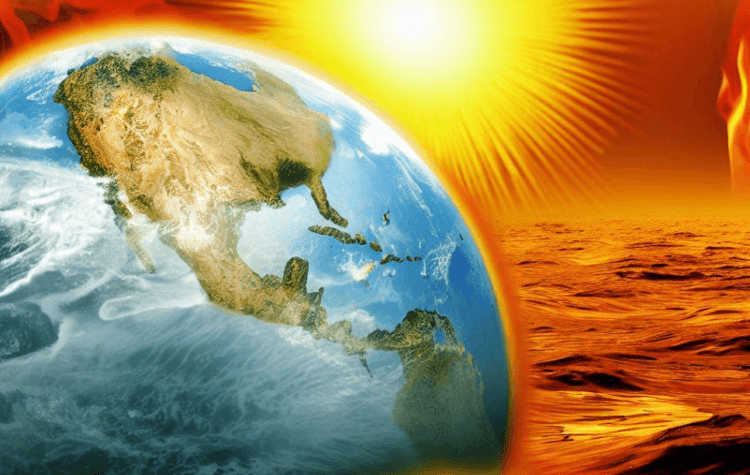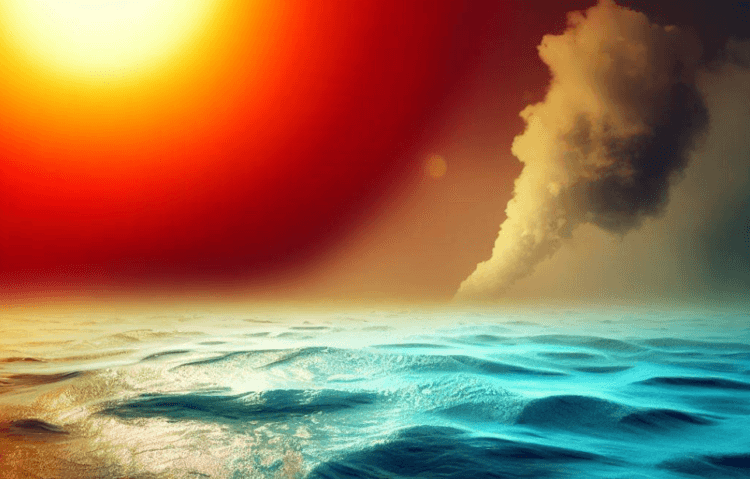As per the World Meteorological Organization, there’s a high likelihood of El Niño occurrence between July and September, but scientists are worried about the already elevated ocean surface temperatures preceding the event. The rise has raised concerns about unpredictable climate change impacts.
Experts caution against solely attributing the temperature peak to the predicted El Niño, emphasizing the need to establish the cause and determine if it’s a worrying trend or an isolated incident. To understand the planet’s trajectory, both surface and deeper ocean temperature data need combining, given the human contribution to global warming leading to ocean heat content increase.
“Ocean heat content has been on a very steady, sometimes accelerating, rise,” warns Assistant Professor Sarah Purkey of the Scripps Institution of Oceanography. With the oceans recording their highest temperatures for four consecutive years and coral reefs affected, the experts list six crucial aspects to watch for as we brace for El Niño.
These aspects include the impact on marine life, particularly the risk of coral bleaching; the potential for changes in weather patterns and extreme weather events; the effect on food supplies and fishing industries; and the impact on coastal communities, particularly those vulnerable to sea-level rise and flooding.
The rising ocean temperatures are particularly concerning for coral reefs, which have already suffered significant damage in recent years due to warming waters. Coral bleaching occurs when the coral expels the algae living within it, turning it white and leaving it vulnerable to disease and death. The potential for another El Niño event could exacerbate this problem, putting even more pressure on the already struggling reef ecosystems.

Changes in weather patterns are another potential impact of El Niño, with some regions experiencing droughts while others face floods. This could have significant implications for food supplies, particularly in regions that rely on agriculture. Additionally, the fishing industry could be impacted, with El Niño often leading to changes in the distribution of fish populations.
Coastal communities are also at risk from rising sea levels and flooding, particularly those in low-lying areas. The effects of El Niño on these communities could be severe, with increased storm surges and coastal erosion.
In summary, while El Niño is a natural phenomenon, the rising ocean temperatures recorded ahead of its potential occurrence highlight the ongoing impact of climate change. As we continue to grapple with the effects of global warming, it is clear that urgent action is needed to mitigate its impact on our planet and its inhabitants.
It is vital that we prioritize reducing greenhouse gas emissions, transitioning to renewable energy sources, and taking steps to adapt to the inevitable changes that are already occurring. This includes investing in coastal protection measures, supporting affected communities, and developing sustainable practices in agriculture and fishing.
At the same time, scientists and researchers must continue to study and monitor the oceans to better understand the changes taking place and identify potential solutions. This requires sustained funding and support for oceanographic research, as well as international cooperation to address the global challenge of climate change.
As individuals, we can also play a role in reducing our carbon footprint and supporting sustainable practices. This includes reducing energy consumption, minimizing waste, and making environmentally conscious choices in our daily lives.
In conclusion, the rising ocean temperatures ahead of the potential El Niño event serve as a stark reminder of the urgent need to address the ongoing impact of climate change. By working together and taking action at all levels, we can protect our planet and ensure a sustainable future for generations to come.
We must act now to prevent irreversible damage to our oceans and the delicate ecosystems they support. This includes addressing not only rising temperatures but also other critical issues such as ocean acidification, plastic pollution, and overfishing.
International agreements such as the Paris Climate Accord and the United Nations Sustainable Development Goals provide a framework for global action on climate change and sustainable development. It is crucial that governments and other stakeholders work together to meet these goals and ensure a healthy and sustainable future for our oceans and the planet as a whole.
In the face of the challenges posed by climate change, it is easy to feel overwhelmed and powerless. However, by taking action and working together, we can make a real difference. Whether it is reducing our carbon footprint, supporting sustainable practices, or advocating for policy change, each of us has a role to play in protecting our oceans and the future of our planet.
©world-news.biz
